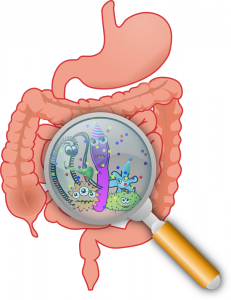 Now that the weather seems to be drying out a bit, I am on the road to check in with my parents in Truckee and on to my son in northern Utah.
Now that the weather seems to be drying out a bit, I am on the road to check in with my parents in Truckee and on to my son in northern Utah.
A few weeks back, my son called me from the emergency room, vomiting blood. The doctors checked him out, sent him home with a possible diagnosis of an ulcer and a referral to a gastroenterologist. An ulcer seemed like a reasonable guess.
His diet since leaving home 10 years ago has been quite bad and the stress that comes with army life could certainly have contributed to an ulcer, not to mention a few other bad habits that interfere with maintaining a robust immune system.
The gastro doc set him up for an endoscopy: a camera is sent down the throat to look at the small intestine and take a piece of the lining for examination. That determined he has celiac disease rather than an ulcer.
This came a huge surprise to me, because celiac disease tends to run in families and there are no occurrences of this on either side of his family.
 Celiac disease is a serious condition where the lining of the small intestine is damaged by a protein called gluten, found in wheat, rye and barely. Left untreated, celiac disease can prevent the absorption of key nutrients and increase the likelihood of other medical problems.
Celiac disease is a serious condition where the lining of the small intestine is damaged by a protein called gluten, found in wheat, rye and barely. Left untreated, celiac disease can prevent the absorption of key nutrients and increase the likelihood of other medical problems.
His doctor said the medical community is seeing celiac disease much more frequently, which it might have something to do with the non-food substances that we have introduced into our food supply.
The research seems to support the idea that autoimmune diseases need two things to show up.
One is a genetic susceptibility. This means that while you may have no family history of the disease you may still be carrying the gene or genes that have the potential for expression and are just awaiting the right circumstances to blossom.
In addition to the genetic tendency, you also need a trigger of some kind, which is often a viral infection.
So when you have the right genetic makeup and are exposed to certain infectious agents, an autoimmune disease may result such as multiple sclerosis, type 1 diabetes, rheumatoid arthritis, lupus or celiac disease.
Two people can be exposed to the same virus and one may develop lupus, for example, and because of each person’s genetic predisposition, the other one does not.
 Researchers are still looking at this relationship and understanding it more completely will take investigation.
Researchers are still looking at this relationship and understanding it more completely will take investigation.
Viral infections such as influenza don’t seem to be the type of infection to kick off autoimmune diseases. More often than not, it seems that one of the herpes virus including varicella zoster virus, human herpesvirus, Epstein-Barr virus, or cytomegalovirus, appear to be the culprit.
Much more research is required before it can be definitively said that a specific virus can spur the expression of an autoimmune disease.
When I arrive at my son’s house, I will help him reorganize his thinking and relationship with food.
One of the most important concepts I want him to understand is that, while it is vital that he avoid gluten, it is equally important that he stay away from highly processed foods because of the damage these substances do to the gut.
 I will also offer some ideas to re-establish robust gut bacteria, such as eating fermented foods like sauerkraut, pickles, and yogurt, taking a high quality probiotic and eating lots of fresh fruits and vegetables.
I will also offer some ideas to re-establish robust gut bacteria, such as eating fermented foods like sauerkraut, pickles, and yogurt, taking a high quality probiotic and eating lots of fresh fruits and vegetables.
My son is young, smart and otherwise healthy, so I have no doubt that his diagnosis of celiac disease will encourage him to make good decisions where food is concerned.
If you want more information on nurturing your gut bacteria, see my blog post Healthy Gut, Healthy Body, Healthy Mind
And for more information about celiac disease, Celiac.org
Virginia Eaton is a health and fitness coach helping people reorganize priorities.



